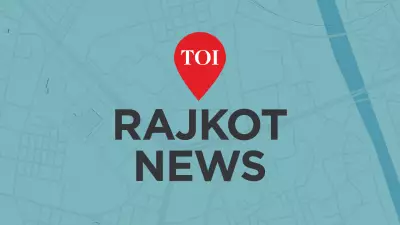
India's premier medical research body is taking decisive action against a silent health emergency that claims over a million lives annually in the country. The Indian Council of Medical Research (ICMR) is developing a comprehensive priority pathogen testing framework to combat the growing threat of antimicrobial resistance (AMR), according to official documents and scientists involved in the initiative.
The Silent Health Crisis Demanding Immediate Action
Antimicrobial resistance occurs when bacteria, viruses, and other microorganisms develop resistance to antibiotics and powerful medications, rendering standard treatments ineffective. This health crisis has reached alarming proportions in India, with World Health Organization data from 2019 indicating it causes more than one million deaths each year.
The newly proposed framework represents a systematic approach to standardizing how hospitals and laboratories across India detect and diagnose infectious diseases. The development process involved extensive consultations with doctors, scientists, and public health experts through 44 separate meetings.
Building India's Pathogen Defense System
The first critical step in ICMR's strategy has been creating a categorized list of priority pathogens requiring immediate attention. The pathogen playbook classifies microorganisms into four distinct categories based on their prevalence, outbreak potential, and diagnostic availability.
Priority 1A includes commonly detected pathogens that must be identified before treatment begins, such as plasmodium (malaria), dengue virus, and salmonella typhi. Priority 1B covers other frequently encountered pathogens like those causing bacterial sepsis.
The classification extends to Priority 2, which encompasses less common pathogens found in clinical settings, and Priority 3, reserved for rare or exotic microorganisms typically detected only during specialized surveillance.
Transforming India's Diagnostic Landscape
Medical experts across India have welcomed ICMR's initiative as a transformative step toward addressing long-standing diagnostic gaps. Dr. Harsh Mahajan, founder of Mahajan Imaging & Labs and chairman of FICCI's health services committee, emphasized that identifying the correct pathogen promptly can completely change infection treatment approaches.
"When diagnosis is quick and accurate, treatment becomes far more effective and patient recovery improves significantly," Dr. Mahajan stated. He believes the framework will establish uniform standards nationwide, making reliable evidence-based diagnosis a routine healthcare component rather than a privilege available only at select centers.
Dr. Manohar K.N., lead consultant at SPARSH Hospital's department of internal medicine and infectious diseases in Bengaluru, described the plan as "timely and transformative." He noted that India serves as the epicenter of the global AMR crisis due to its substantial infectious disease burden and widespread antibiotic misuse.
The implementation timeline and specific mechanisms for rolling out this framework across India's hospitals and laboratories remain under discussion. However, the initiative already represents a crucial shift from reactive treatment to proactive infection management that could save countless lives and strengthen India's public health infrastructure for years to come.





